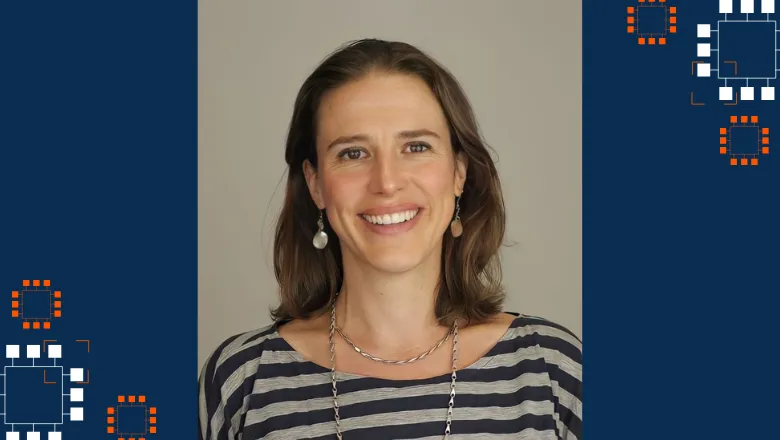It seemed to me that it was too difficult for a single person to do that for an active implantable medical device, the skills required were too broad, from engineering to regulatory expertise and quality management, and the costs far exceeded what could be secured from grant funding. Then I realised that SMEs had the same problem and that’s where MAISI comes in, we offer academia and industry a controlled manufacturing service as is needed to meet the regulatory requirements for the most complex devices.
Professor Anne Vanhoestenberghe, Professor of Active Implantable Medical Devices and Director of MAISI
18 June 2024
In Conversation with Professor Anne Vanhoestenberghe
Prof Anne Vanhoestenberghe talks to us about what led her to become Director of MAISI and breaking down barriers for student success.

Prof Anne Vanhoestenberghe started in her role as Director of MAISI, a national facility for the Manufacture of Active Implants and Surgical Instruments, situated within the School of Biomedical Engineering & Imaging Sciences, around two years ago.
Anne trained as an engineer in Belgium (ULB) and the Netherlands (TUEindhoven), then had the opportunity to undertake a PhD under the supervision of Prof Donaldson in the Implanted Devices Group at UCL. Anne has worked in Germany (IMTEK, Freiburg) and Australia (UNSW, Sydney). She says she has been fortunate to work and be mentored by many influential people during her career.
“My PhD supervisor, Prof Donaldson, was the last person to make a device in a university cleanroom that was then implanted in a human patient. Since then, this process has become considerably more difficult.
“So, I started looking into the barriers to reaching that stage. For the most complicated type of products, with the highest risk, it might take someone 10-20 years before their device is first used in a human, and the manufacture is a significant roadblock because of the need for quality control.”
What excites Anne most about MAISI is its fit with the School's translational aspirations, “we're working very closely with the School's Quality and Regulatory team and the London Institute for Healthcare Engineering to help researchers and SMEs achieve their full potential. We are strongly connected to King’s MedTechHub, but also public-facing and available to anyone. MAISI is very much community driven and community focused,” she says.
Aside from her work with MAISI, Anne is also involved in teaching and learning within the School and actively seeks new strategies to develop more inclusive learning spaces and improve the university experience of non-mainstream students.
“Many of our most successful students “fit” in the system - of course they have to work hard to succeed, but they're not experiencing any barriers in addition to their studies; but there are students who are facing barriers all the time.”
“I'm very aware of this through my work with people living with a spinal cord injury, where a barrier can be a physically inaccessible space, like a building with an accessible lift, but the entrance to the lift is up three steps, something like that. While a wheelchair user has a disability that is visible, many other barriers are harder to see.”
Anne says she tries to be as broad in her understanding of these barriers as possible, “I also try to be approachable and ask people to flag when I'm not doing it well enough. I’m aware we can always do better.
That’s what I've tried to do in my teaching, which doesn't mean that my courses are easy, that's not the point. It's about giving everybody the chance of success, still on the validation of their skills and knowledge, but by breaking down some of these barriers and making success more accessible to all students,” says Anne.
MAISI is a national facility for the Manufacture of Active Implants and Surgical Instruments, located at St Thomas’ MedTech Hub. The facility aims to streamline the clinical translation of healthcare engineering research and address the lack of specialised and regulated manufacturing facilities within healthcare settings. You can learn more about MAISI here.


